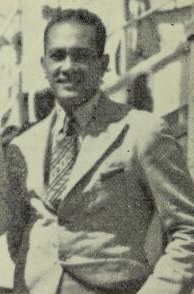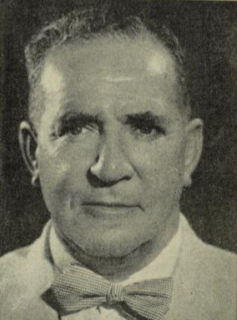Related Research Articles

The Legislative Council of Fiji was the colonial precursor to the present-day Parliament, which came into existence when Fiji became independent on 10 October 1970.

The Colony of Fiji was a British Crown colony that existed from 1874 to 1970 in the territory of the present-day nation of Fiji. The United Kingdom declined its first opportunity to annex the Kingdom of Fiji in 1852. Ratu Seru Epenisa Cakobau had offered to cede the islands, subject to being allowed to retain his Tui Viti title, a condition unacceptable to both the British and to many of his fellow chiefs, who regarded him only as first among equals, if that. Mounting debts and threats from the United States Navy had led Cakobau to establish a constitutional monarchy with a government dominated by European settlers in 1871, following an agreement with the Australian Polynesia Company to pay his debts. The collapse of the new regime drove him to make another offer of cession in 1872, which the British accepted. On 10 October 1874, Britain began its rule of Fiji, which lasted until 10 October 1970.

Ratu Sir Edward Tuivanuavou Tugi Cakobau was a Fijian chief, soldier, politician and cricketer. He was a member of the Fijian legislature from 1944 until his death, also serving as Minister for Commerce, Industry and Labour and Deputy Prime Minister. During the 1940s he made two appearances for the Fiji national cricket team.

General elections were held in Fiji between 26 September and 8 October 1966, the last before independence in 1970 and the first held under universal suffrage. The result was a victory for the Alliance Party, which won 23 of the 34 elected seats. Its leader Kamisese Mara became the country's first Chief Minister the following year.
Kunwar Bachint Singh was an Indo-Fijian teacher and politician. He arrived in Fiji in 1927 as a teacher for the Arya Samaj but his association with Vishnu Deo led him to play an active role in aggressively promoting the Arya Samaj and finally into politics. He was elected into the Legislative Council as a protégé of Vishnu Deo but after the election took an independent stance opposed to the wishes of the majority of the Indo-Fijians. He supported nominated rather than elected representation, actively supported the war effort and even attempted to set up a farmers union opposed to a number of existing unions. The Government rewarded him for his loyalty by nominating him into the Legislative Council three times, appointing him as a Justice of the Peace and as the first Indo-Fijian member of the Executive Council.

James Madhavan was an Indo-Fijian politician. He was a member of the Legislative Council and House of Representatives for most of the period between 1947 and 1973 and had two spells in the Executive Council.

General elections were held in Fiji between 17 April and 4 May 1963. For the first time, women and indigenous Fijians were given the right to vote alongside the male European and Indo-Fijian population.

Muniswamy Mudaliar was an Indo-Fijian politician who was a member of the Legislative Council from 1932 to 1937. In 1933 he became Fiji's first Indo-Fijian Justice of the Peace.

General elections were held in Fiji in 1929. They were the first in which Indo-Fijians were allowed to vote.

General elections were held in Fiji on 31 August 1932, although only one of the nine elected seats was contested.

General elections were held in Fiji in July 1937, the first in which an equal number of Europeans and Indo-Fijians were elected.

General elections were held in Fiji on 29 July 1944. The term of the Legislative Council elected in 1940 was due to end in 1943, but was extended by a year by the Governor.

General elections were held in Fiji in September 1947. Voting took place in the Northern and Western and Southern constituencies on 20 September, with voting in the Eastern constituency carried out between 15 and 22 September.

General elections were held in Fiji in August 1950. Voting took place in most locations on 26 August, and in the Lau and Lomaiviti Islands between 21 and 28 August.

General elections were held in Fiji on 29 August 1953.

General elections were held in Fiji in August 1956; voting took place in the Eastern constituencies between 11 and 18 August, and on 18 August in all other constituencies.
Sadanand Maharaj was an Indo-Fijian politician. He served as a member of the Legislative Council and Executive Council between 1950 and 1953.

Reuben Kiraua Uatioa was an I-Kiribati politician. After being elected to the House of Representatives in 1967, he became the colony's first Chief Elected Member and then Leader of Government Business, serving until unexpectedly losing his seat in 1974. He then served as Speaker of the House of Assembly until 1975.

William Granger Johnson was a Fijian businessman and politician, serving as a nominated member of the Legislative Council in two spells during the 1940s and 1950s.
Abdul Rahman Sahu Khan was an Indo-Fijian civil servant and politician. He served as a nominated member of the Legislative Council between 1944 and 1947.
References
- 1 2 3 New Fiji Legislative Council Pacific Islands Monthly, October 1953, p19
- 1 2 Deaths of Islands People Pacific Islands Monthly, February 1980, p73
- ↑ John D. Kelly (1991) A Politics of Virtue: Hinduism, Sexuality, and Countercolonial Discourse in Fiji, University of Chicago Press, p137
- ↑ Kelly, p163
- ↑ Fiji Indians and war Pacific Islands Monthly, June 1942, p6
- ↑ Jacqueline Leckie (1997) To Labour with the State: The Fiji Public Service Association, University of Otago Press, p42
- ↑ Item Pacific Islands Monthly, April 1944, p7
- ↑ Mr B. Raghvanand Pacific Islands Monthly, April 1955, p162
- ↑ Fiji Royal Gazette 1963, p16